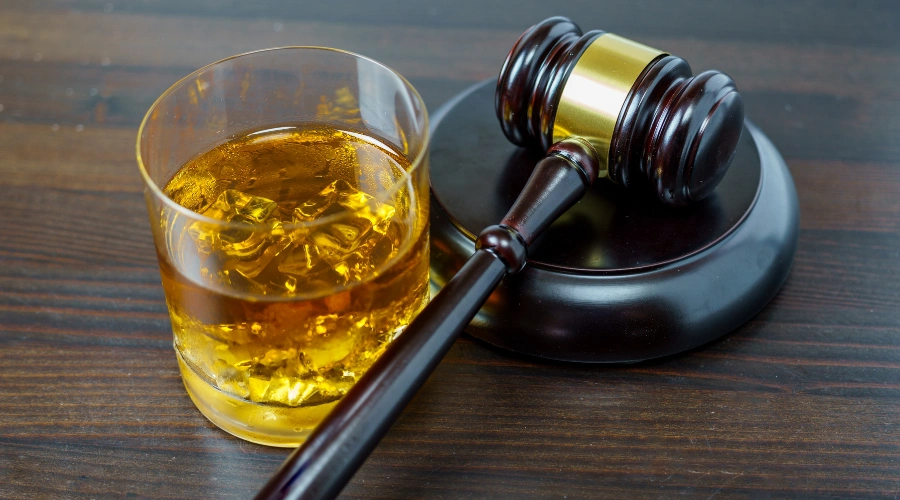The Consequences of Drinking Alcohol at The Workplace
Substance abuse and alcoholism may color your entire life, including the work you do. Even the most lenient supervisor may have an issue with you drinking on the job, but is it illegal to drink at work?
The rules surrounding alcohol at work can be complex, but we will review them in full to provide a complete answer.
Here is a brief summary: in certain states, you may not be fired for alcohol possession at your place of employment. However, Georgia has at-will termination policies that permit employers to fire for any reason, including drinking on the job.
But there is no need to test your employer and possibly lose your job by drinking on-site. This is because in many cases, you will be able to retain your job while seeking treatment for problem dirning with the Employee Assistance Program (EAP), Americans with Disabilities Act (ADA), or Family and Medical Leave Act (FMLA).
Ingrained Recovery can help you get sober so that you don’t have to worry about losing your job or career. We offer comprehensive treatment plans and privacy to allow you to focus on recovery. Keep reading to learn more about the consequences of drinking at work and how you can seek help.
Workplace Policies on Alcohol vs Laws on Drinking at Work

Alcohol abuse can color every aspect of your life, from personal relationships to career growth.
When you struggle with alcohol addiction, it may feel impossible to make it through your daily responsibilities without a drink.
In most situations, imibibing alcohol at work is not necessarily illegal. But let’s look at the Peach State specifically, as the guidelines in Georgia are similar to those in many other states.
Does Georgia State Law Address Drinking at Work?
What does Georgia state law have to say about drinking at work?
Particularly in Georgia, there are no real laws on the books prohibiting drinking on the job. Police officers aren’t going to get involved in your work affairs unless they have a real reason to charge you, such as disorderly conduct.
What is the Typical Punishment for Drinking Alcohol at Work?
That being said, workplace alcoholism is frowned upon by employers. It results in lost productivity, poor judgment, poor decision-making, and inappropriate behavior.
You could lose your job due to Georgia’s at-will termination policies. Under this umbrella, an employer can fire an employee for any reasonable offense, which could include drinking alcohol on the job. You might even be penalized for having alcohol in your possession if you’re a state employee.
The good news is that you might find that your treatment program is supported by an employer, so that you no longer have to resort to alcohol use at work.
Get Effective Detox and Rehab Options
Find Help At Ingrained Recovery
Using Alcohol Tests on the Job to Prove Substance Misuse
Alcohol-related issues are known to affect an employee’s performance on the job, even if they think it won’t have an effect. If an employer suspects that you have unacceptable blood alcohol levels, then they may be within their rights to administer a drug or alcohol test.
In some instances, this might be baked into their company culture, heading off alcohol use at the start of your employment. This ensures that you and your co-workers are safe and ensures compliance with company policy.
What situations might many employers utilize to encourage employees to stay sober?
- Upon hiring: When you accept a new position, they might administer a standard drug test to see if you are abusing substances.
- Reasonable suspicion: If other employees report your behavior or managers think you may be drunk on the job, they can test your blood alcohol levels to confirm their suspicions.
- Following traffic accidents: Trained professionals who are in safety-focused professions may be subject to testing following an accident, regardless of how minor.
- Random testing: Recovering alcoholics can make their personal tragedies known, but they won’t get out of random testing applied to all employees equally.
For Employers: Ingrained Offers Programs that Help Your Staff Members Get Help for Alcohol Abuse

If you consume alcohol at work or simply know that your drinking is getting out of hand, there are tons of programs that can help you recover from substance abuse. Medical treatment is usually necessary in the form of medical detox and residential rehab.
Which resources are available to you for mental health, substance abuse, and more? Knowing what to use and when can help you find an appropriate treatment program that fits your needs and situation.
Using an Employee Assistance Program for Alcohol Treatment Support
One of the first things that you can utilize is the Employee Assistance Program (EAP). This program is open to all employees, helping them make smarter and safer decisions. This benefit is voluntary, so your employer can’t mandate that you use it. However, it could grant you some clarity on substance use.
An EAP counselor is available for you 24/7 and can be utilized for up to eight sessions per person in any given contract year.
Keep in mind that they can help you make decisions and learn coping skills for things like workplace conflicts, extreme stress, anxiety, and situational concerns. They can help with alcohol abuse, but it may still benefit you to enroll in inpatient care to get the targeted and intensive help you need.
Instead, you can use the Employee Assistance Program to determine if further treatment is necessary and rely on their expertise to point you in the right direction.
Get Accredited Treatment at Ingrained
Find Help At Ingrained Recovery
What is the Role of the Americans with Disabilities Act When Attending Rehab?
Another way to take charge of your own health is to seek help under the Americans with Disabilities Act (ADA). Alcoholism is considered a disability under federal laws if it impedes your ability to function. If you find that you can’t stop drinking on the job and it’s affecting your job performance, you may seek a diagnosis.
Under the ADA laws, you can seek reasonable accommodations for your alcoholism. Plus, it protects you from discrimination in the workplace if it’s disclosed to the HR department.
However, there are some finer points that can limit your use of the ADA. Employees drinking on the job can still be terminated according to the company’s own rules. Employers have to adhere to workplace safety concerns, and possession of alcohol may be against their own laws.
Being caught drinking, even under the ADA, can be grounds for termination.
Using the Family and Medical Leave Act for Job Security When Seeking Treatment
The Family and Medical Leave Act is a great way for you to seek help to quit drinking. This goes beyond your local laws and mandates at a federal level that an employer has to permit leave to any employees seeking treatment for an addiction during work hours.
You must be able to prove that you are under the care of a healthcare provider or have a referral from a healthcare provider. In other words, you can use FMLA for addiction treatment, but cannot leverage it if you need to miss work due to being intoxicated.
This is one way to protect your job if you’re currently relying on alcohol at work to get through the day.
The exception to the protection under FMLA is if your employer has a clearly communicated policy of intolerance for substance use or abuse. While they can’t discriminate or take disciplinary actions haphazardly, they might be within their rights to terminate you if the policy applies across the board.
Maybe your employer has been okay with your frequent absences and excessive use of sick leave, but it may be time to move beyond this situation. If you work intoxicated, you should be held responsible for your actions. An employer could encourage you to seek help at a rehab like Ingrained Recovery.
Allowing Employees to Seek Help at Ingrained Recovery

Getting help for substance abuse can improve your job performance, according to the National Institute of Health. The influence of alcohol is generally not positive, and you don’t want your managers to make an example out of you.
We offer comprehensive support groups and individualized treatment plans in a private setting. While you may have to inform your employers to fulfill the legal requirements of FMLA, you can rest easy knowing that your coworkers don’t have to be any wiser.
Our sprawling Georgia campus is fifty acres, allowing you exclusivity and upscale accommodations to help get drinking under control.
Up To 100% of Rehab Covered By Insurance
Find Help At Ingrained Recovery
Get Help for Problem Drinking at Ingrained Recovery Today
Our enrollment team is ready and waiting to answer your questions. Don’t take a risk with your job by operating with alcohol impairment in the workplace. This is generally a warning sign that you need support for your alcoholism. Ingrained Recovery is here to help with same-day admissions.
Let us verify your insurance benefits in a quick, confidential call and help you navigate the influence of alcohol on your health. Our approachers are effective and evidence-based, and designed to support you so that you can get back to your job without the risk of being terminated for substance use!
All calls to our facility are strictly confidential, so please reach out for support options now.
References
- Georgia Department of Human Services. (n.d.). 1301 alcohol and drug-free workplace. Policy and Manual Management System (PAMMS).
- State of Georgia. (n.d.). Employee assistance program. Department of Administrative Services.
- U.S. Commission on Civil Rights. (n.d.). Chapter 4: Substance Abuse Under the ADA.
- U.S. Department of Labor. (n.d.). Family and Medical Leave Act Advisor. eLaws Advisor.
- Institute of Medicine (US) Committee for the Substance Abuse Coverage Study; Gerstein DR, Harwood HJ, editors. Treating Drug Problems: Volume 2: Commissioned Papers on Historical, Institutional, and Economic Contexts of Drug Treatment. Washington (DC): National Academies Press (US); 1992. Drugs, the Workplace, and Employee-Oriented Programming. Available from:

